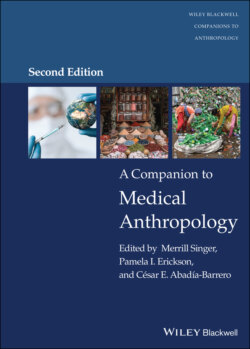Читать книгу A Companion to Medical Anthropology - Группа авторов - Страница 23
FOUDATIONAL CONCEPTS From Health to Sickness
ОглавлениеMost early medical anthropologists defined health (and most still do) as a broad construct, consisting of physical, psychological, and social well-being, including role functionality. What was novel in emerging medical anthropology, however, was a distinction increasingly drawn between “disease” – biomedically measurable lesions or anatomical or physiological irregularities – and “illness” – the culturally structured, personal experience of being unwell, which entails the experience of suffering.
The effort to hash out such distinctions reflected the prioritization of a meaning-centered focus and growing use of the emic-etic framework, absorbed through linguistics. “Etic” constructs (such as the temperature represented on a thermometer) are meant to be universally applicable or culture-free. The problematic assumption of one true empirical reality notwithstanding, etic constructs are opposed to “emic” ideas: ideas (and note the implication there) that cultural insiders have about themselves and their worlds. “Disease” was an etic, universally measurable entity. “Illness” (the emic perception) was not. As such, illness could refer to a variety of conditions cross-culturally, some of which might not exist in other cultural worlds.
Thinkers of the day soon realized that, however helpful, this disease-illness dichotomy recapitulates the mind-body dichotomy that, even then, some criticized biomedicine for trafficking in. This view took fuel in part from the bourgeoning rift between positivist-minded and interpretive or hermeneutic scholars – a rift often termed the “two cultures” or science-humanities split, a la Charles Percy Snow (1993 [1959]). The problem was that while disease, as the dichotomy defined it, was bodily, illness was conversely mental: Disease was thus attributed a real, concrete, scientific factuality or objectivity that illness, as a subjective category, could be denied (see Hahn 1984).
A second criticism of the dichotomy hinged on the fact that both disease and illness were individual attributes. The term illness referred, as it still often does, to an individual’s social relations, but generally only insofar as these caused the illness (e.g., when an offended party placed a hex) or as the illness leaves the individual unable to fulfill social or role obligations. Some scholars working in the 1970s wanted to link suffering more palpably to the social order by examining how macro-social forces, processes, and events (such as capitalist trade arrangements) could culminate in public health problems and poorly functioning health systems (again, see Hahn 1984). Some recommended using the term “sickness” when highlighting larger social processes (see Frankenberg and Leeson 1976).
